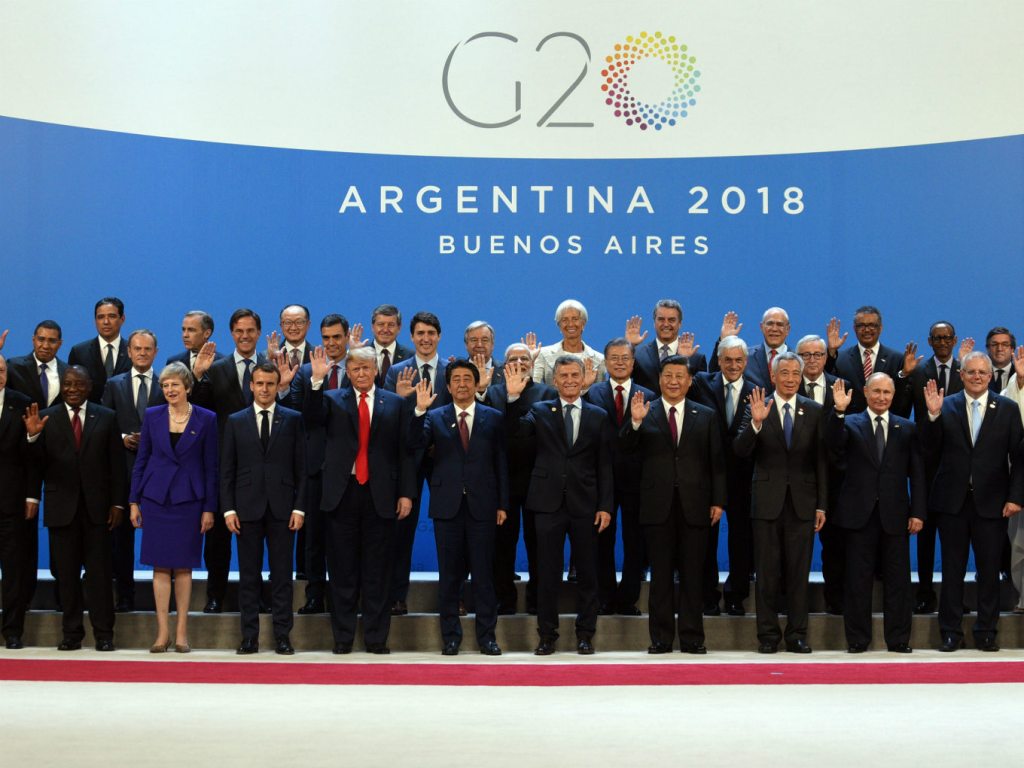
The group of the world’s 20 biggest economies, G20 agreed to introduce regulations for cryptocurrencies in orders to counter money laundering and financial terrorism. The regulations will be in line with the recommendations made by the Financial Action Task Force (FATF)
G20 leaders met in a summit held on December 1, 2018, in Argentina. The decision was announced in a joint press statement that said:
“We will continue to monitor and, if necessary, tackle emerging risks and vulnerabilities in the financial system; and, through continued regulatory and supervisory cooperation, address fragmentation.”
Economies like India, China, US, UK and EU, who are part of the G20 group agreed that international standard regulations on crypto assets are necessary for sustainable growth. The member countries have pledged to support a full, timely and consistent implementation and finalisation of the agreed financial reform agenda, and the evolution of its effects.
Central banks and policymakers around the world have been hesitant to accept cryptocurrencies. According to them, the digital assets could be for evading taxes as well as under-the-radar cross-border payments. Similar is the case in India, where a batch of cryptocurrency-related petitions pending in the Supreme Court.
Led by the department of economic affairs secretary Subhash Chandra Garg, an interministerial committee is looking into further understanding the virtual assets and forming crypto regulations. Some members of this committee have actively participated in G20 and FATF working group meetings, including RBI executive director Ganesh Kumar and finance ministry officials. While drafting their crypto report the committee will have to follow the FATF recommendations as well.
The topic of crypto assets was introduced to the official communiqué of the first G20 meeting of finance ministers and central bank governors of 2018, earlier, in March. They have been looking into issues related to the assets in regards to consumer and investor protection, market integrity, tax evasion, money laundering and terrorist financing.
Later, a group of 35 countries and the EC (European Commission) asked the FATF to revise anti-money laundering policies pertaining to cryptocurrencies. The worry of industry watchers is that the virtual assets lack the key attributes of sovereign currencies and can have financial stability implications.
The regulatory standards released on October 19, by FATF emphasises that the ‘virtual assets’ are distinct from fiat currencies or the legal tender of a country, and hence should be treated as assets instead of currencies.
The task force further stated that while the virtual assets do have the potential to spur financial innovation and efficiency and improve financial inclusion, they also can also be misused by criminals and terrorists to launder their proceeds or finance illicit activities. Thus, FATF strongly recommends certain comprehensive requirements for combating money laundering and terrorist financing.
The governments and the private sector have asked the task force for greater clarity about the activities the FATF standards apply. According to these recommendations, governments should ensure that virtual asset service providers are subject to anti money laundering (AML)/counter financial terrorism (CFT) regulations, such as conducting customer due diligence including ongoing monitoring, record-keeping, and reporting of suspicious transactions
Another important call to action recommended is for all concerned government bodies to urgently take legal and practical steps to prevent the misuse of virtual assets. Including understanding and assessing the risks involved in accordance to their jurisdiction and apply risk-based AML/CFT regulations.
Keep in mind that we may receive commissions when you click our links and make purchases. However, this does not impact our reviews and comparisons. We try our best to keep things fair and balanced, in order to help you make the best choice for you.